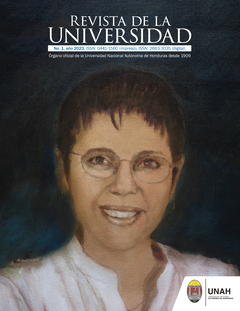The State, the capitalist system and Honduran society
DOI:
https://doi.org/10.5377/ru.v1i1.17236Keywords:
State, development models, capitalist system, productive forcesAbstract
The issue of development in Latin America has not been homogeneous between countries, rather different situations have arisen on the continent, which leads to analyzing how the capitalist system develops in the region. In the case of Honduras, reference can be made to three predominant accumulation models: the primary export model, the import substitution industrialization model and the Neoliberal model. In the first part of this work it is intended to relate the economic model with the conception of the State and the development of productive forces, considering the colonial era, independence and the formation of the Liberal State until
the first third of the 20th century. The second part addresses a brief summary of what the import substitution model or developmental approach entailed and the transition to the neoliberal model with the structural adjustments that are still in force in Honduras. Special emphasis is given to the first part of the work as it is argued that in this stage the mechanisms of the capitalist system in our country are created and reproduced, while in the period from the 1980s onwards they are consolidated through the neoliberal approach.
874
Downloads
Published
How to Cite
Issue
Section
License
Copyright (c) 2023 Revista de la Universidad

This work is licensed under a Creative Commons Attribution-NonCommercial-ShareAlike 4.0 International License.




